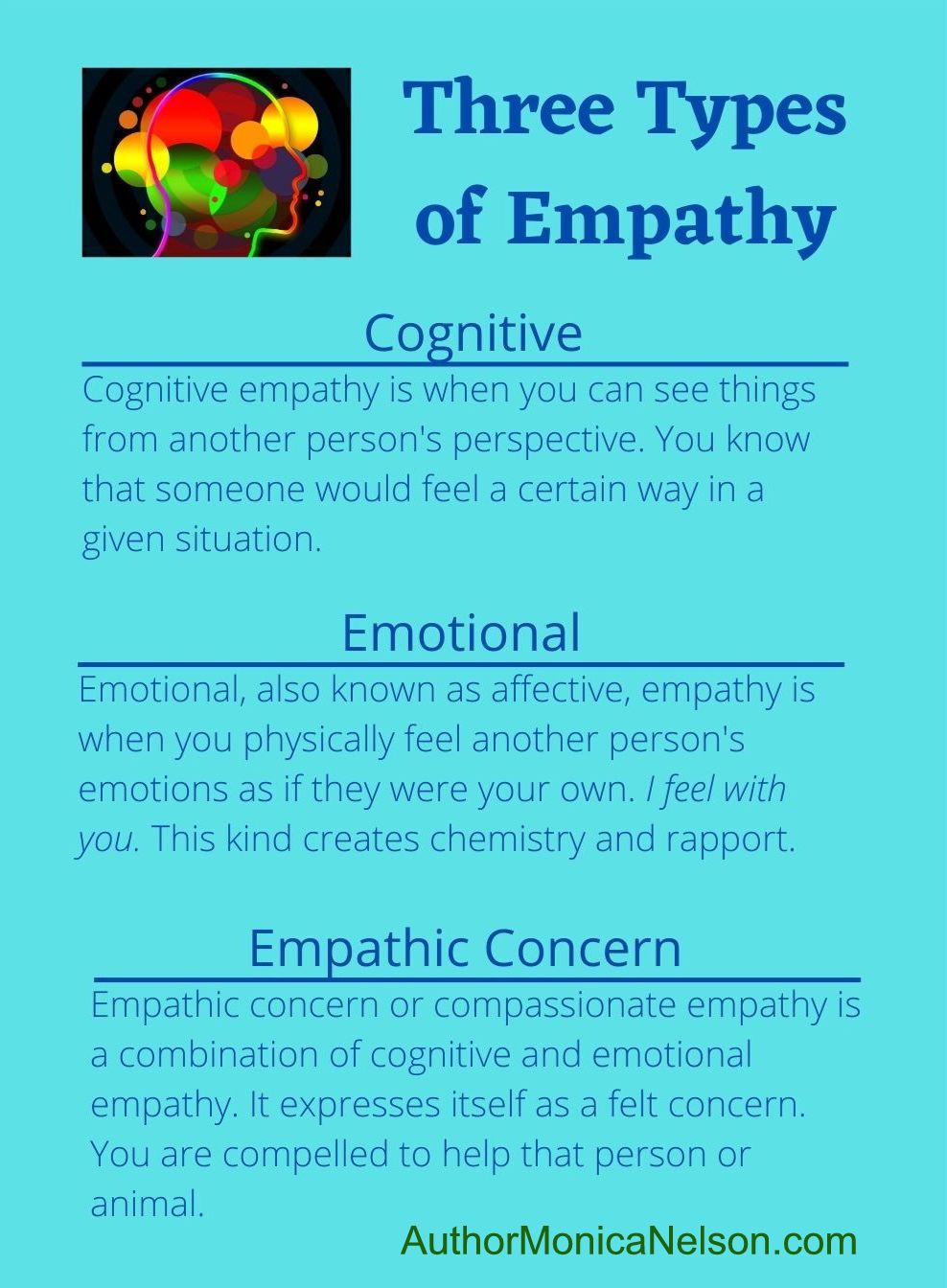Years ago, I worked in the downtown district of a major metropolitan area. While the atmosphere was mostly professional people, there was a homeless presence. One day as I was walking to my car, I was approached by one of the homeless men I passed on the street. He asked for money – I refused and walked away.
He hurled insults at me. Heartless. Selfish. I kept walking, but the insults stayed with me. I went home feeling terrible. I felt his discouragement. I felt his pain. I even felt his hunger. So, how could I refuse to help someone in such dire straits?
Was I lacking in empathy for this man?
Empathy is part of the array of human emotions. Most of us have some degree of empathy, and we are encouraged to build our empathy to become a better person. That makes it an emotion that we need to understand better.
There are three types of human empathy.

Cognitive Empathy
People who possess cognitive empathy are able to see a situation from another person’s perspective. You can imagine what it is like to be “in that person’s shoes.” Often called perspective-taking, we can build our cognitive empathy by being open-minded. As we open to other’s experiences, we can accept where people are coming from and mentally comprehend their pain.
The downside of this type of empathy is that it can be used by narcissists and Machiavellian types to manipulate and harm. When you know how someone will react, it is possible to misuse that information to achieve self-centered desires.
Emotional (Affective) Empathy
This type of empathy goes a bit further. With this type, your body and mind resonate with the other person’s suffering. You feel their pain physically and/or experience their emotion within your mind and body. When you experience another person’s suffering, it becomes more personal as you actually experience the same feeling within you.
The consequence of this type of empathy can overwhelm. You are not only dealing with the effects of your own emotions and sensations within yourself, but with others’ as well. As mentioned above, people with ill intent can use their emotional empathy to access a deeper understanding of your mindset, leading to even more manipulation and harm.
Empathic Concern or Compassionate Empathy
This type of empathy has been described as a subset of emotional empathy. Or a combination of cognitive and emotional empathy. It is basically the compassionate expression of the empathy that you have. When the empathy that you feel spurs you on to immediate action. As an example, many people in the healthcare industry enter their field with a fiery desire to help ease suffering. Many believe that our world would solve all its problems if we all possessed empathic concern for our fellow humans.
We might then believe that this is the best empathy to have and that we should all strive to become models of empathic concern. While this is an idealistic goal, it does present problems. For example, there was a study involving hospice nurses that revealed that while those who had the highest empathic concern performed parts of their jobs better, it negatively affected their frame of mind. Feeling the patients’ suffering, along with family members’ anguish, plus their own, led those nurses to a high level of personal distress. That distress made them less able to do their job of providing comfort, as well as pushing them toward burnout.
The truth is that we all possess empathy. It can be one kind at this moment, another the next. Empathy for the most part is desirable. But we all exhibit different levels, at different times, and in different quantities. Compassionate empathy is a noble goal. But it must be balanced with our own physiology and our own lives.
Whatever empathy you have, cherish it and nourish it. Use it for benevolent ends. But also know your limits and take care to use that empathy when dealing with your own emotions. Accept that you cannot solve all the world’s problems. Keep a balance as you work toward the goal of compassion.
Copyright 2022, Monica Nelson

